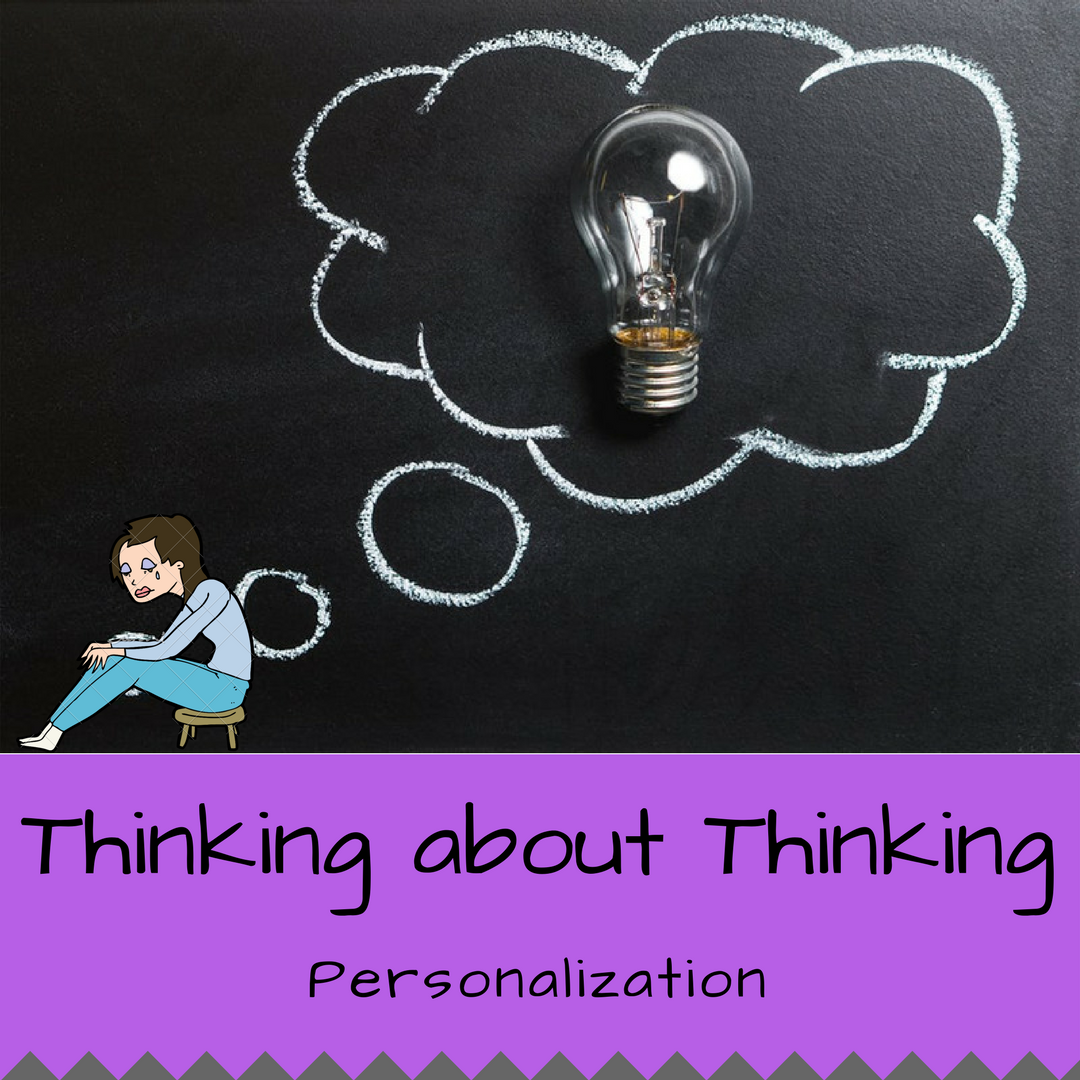Oftentimes for people who are anxious, when something doesn’t go just the way they intended, the thought that follows is “What did I do wrong?” In personalization, the thoughts are similar: “What did I do to offend that person? How is this my fault? Oh no, now that person doesn’t like me, and it’s my fault. I’ve really messed this up.”
To be fair, we all make mistakes and at times it is indeed our fault, but for people who tend to personalize the issue, no other more likely or plausible reasons are considered, and the assumption is that it is always their fault.
Interestingly, this irrational cognition has similarities with the Fundamental Attribution Error, first researched by social psychologists Edward Jones and Victor Harris in 1967. It posits that people assume that one’s behavior is always indicative of one’s character (e.g., that guy driving in front of me is an inconsiderate idiot who did that on purpose, as opposed to a driver who is usually quite adept but was distracted by her infant in the backseat at that moment). In personalization, the assumption, however, is about oneself: I am that horrible person, this somehow must be my fault. So when a text goes unanswered, the assumption is that the other person is mad at me, and what did I do to cause that anger, as opposed to my friend has his phone off, or is in class, or another more plausible reason.
When addressing personalization, one must start by thinking about one’s thinking: what other reasons are there why he didn’t text me? In general, how is our relationship, and does it makes sense that he’s mad at me? Even if he is, can we resolve the ‘issue’? or will he no longer be my friend? Just like the other irrational cognitions, we must stop and examine the data as opposed to run on our scary emotional thoughts.

